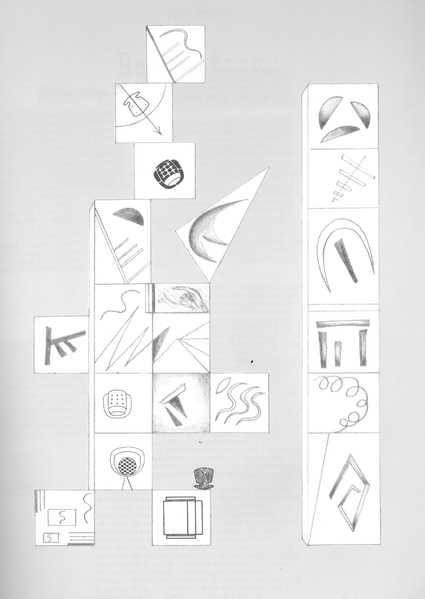The practice of deconstruction is made up of the dismantling of all 'significances' by the bringing about of an inflation of loaded images, preferably dealing with violence, advertising and pornography. For this purpose one draws upon the media and the (often contemporary) history of art. In this matter the images that are received and often suffer significance inflation, are reproduced in a new structure. This proces should not only prove but also propagate insignifiance instead of criticising it. A latent but pressing need of significance underlies this attitude; the need of fundamental emotions and of a consciousness that places itself in a framework of moral absolutisms. From fear of this need and from the notion of the dangerous consequences of it, oout of impotence the other extreme is propagated.
A complexity of material, form and the value of significance is the result of these endeavors. Polyvalence equals non valence. It is striking that within the pursuit for complexity there is an obvious preference for reproductive techniques and media.
Nevertheless these are not used to realise a quantity nor to provide the work with a wider range of distribution. reproduction only serves here as proof of the possibility to produce an image without deriving any significance from it or to approve the original model
If you'd like to quote something: Maats, Frits. "The Painting as a semi-manufactured Article." Mediamatic Magazine vol. 1 # 1 (1986)
Translation: 'Grand Prix' Groningen


